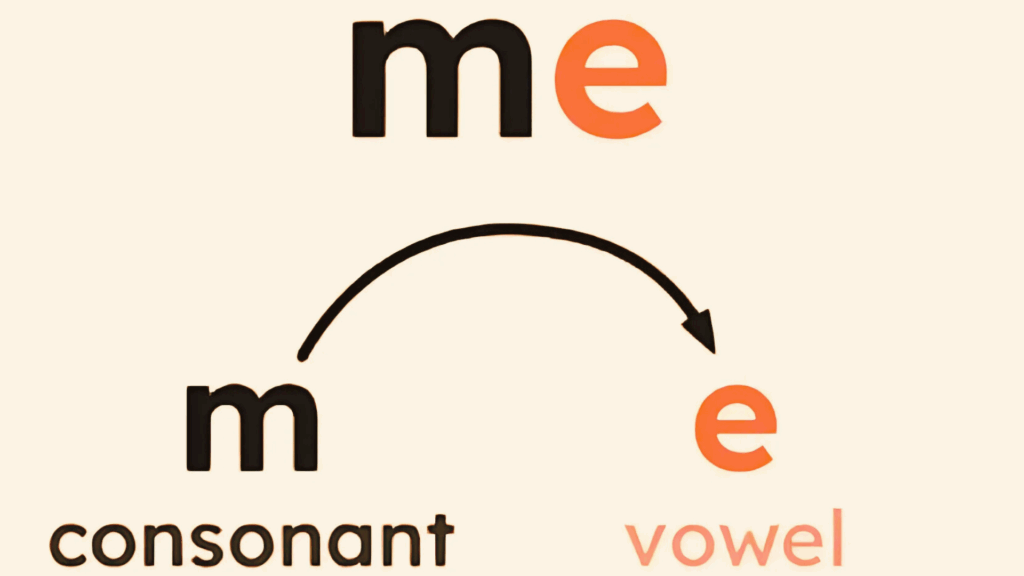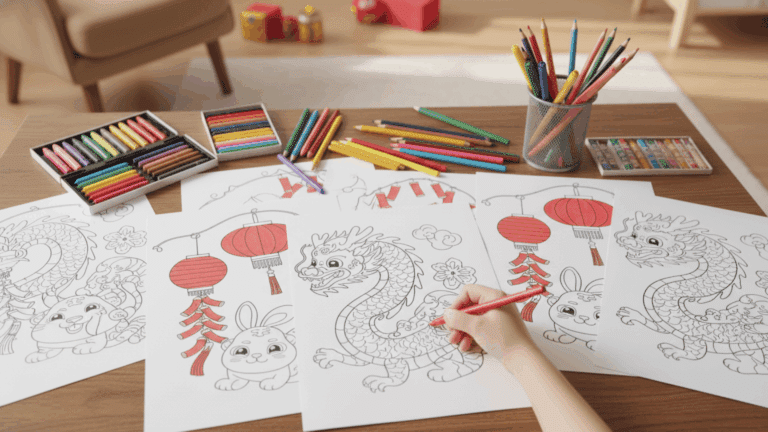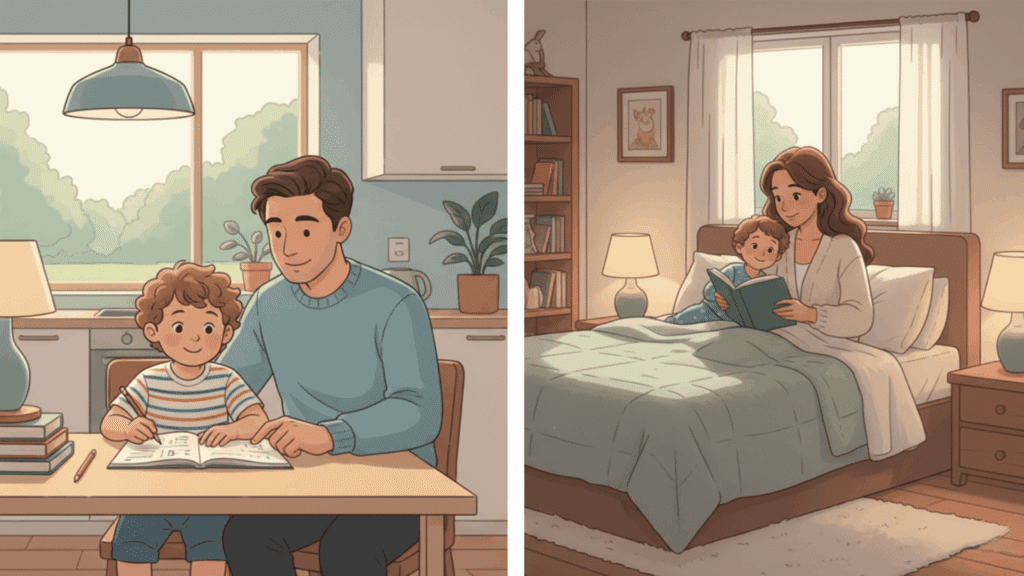Want to sound smarter in conversations?
Most people struggle with pronunciation. They stumble over words. They avoid speaking up in meetings. It’s frustrating when someone knows what they want to say but can’t say it clearly.
An open syllable word list can change that. These words end with vowel sounds that flow naturally. They are easier to pronounce and remember.
This blog compiles the most useful open syllable word lists that will instantly boost anyone’s vocabulary.
What are Open Syllables?
An open syllable ends with a vowel sound. The vowel makes its long sound because nothing blocks it. Think of words like “me,” “go,” and “hi.” The vowel sound flows freely.
Closed syllables are different. They end with consonants that “close” the vowel sound. Words like “cat,” “dog,” and “sit” have short vowel sounds because the consonants prevent them from being pronounced as long vowels.
Open syllables appear everywhere. They’re in simple words like “no” and “we.” They’re also in longer words like “ta-ble” and “ba-by.” The first part of these words has open syllables.
Understanding this helps people read better and speak more clearly.
Open Syllable Words Examples
Open syllable word lists are powerful tools for developing reading fluency and decoding skills. Check out these examples to master long vowel sounds and strengthen your vocabulary!
One-Syllable Words
Open syllables are syllables that end with a vowel, resulting in the vowel having a long sound. One-syllable open syllable words are foundational in early reading development, helping learners recognize vowel sounds and patterns.
1. I
2. Cry
3. Dry
4. Flu
5. Fry
6. Go
7. He
8. Hi
9. Be
10. Me
11. My
12. No
13. She
14. Shy
15. So
16. Spy
17. Try
18. We
19. Why
Two-Syllable Words
Two-syllable open-syllable words often combine an open syllable with another syllable, aiding in the development of decoding skills and understanding word structures.
20. Ago – a-go
21. Also – al-so
22. Baby – ba-by
23. Bacon – ba-con
24. Began – be-gan
25. Being – be-ing
26. Bison – bi-son
27. Broken – bro-ken
28. Bugle – bu-gle
29. Cargo – car-go
30. Cedar – ce-dar
31. Climate – cli-mate
32. Cubic – cu-bic
33. Data – da-ta
34. Depot – de-pot
35. Ego – e-go
36. Female – fe-male
37. Future – fu-ture
38. Giant – gi-ant
39. Hero – he-ro
40. Human – hu-man
41. Humid – hu-mid
42. Humor – hu-mor
43. Judo – ju-do
44. Legal – le-gal
45. Lion – li-on
46. Maybe – may-be
47. Meter – me-ter
48. Moment – mo-ment
49. Music – mu-sic
50. Over – o-ver
51. Photo – pho-to
52. Pilot – pi-lot
53. Poem – po-em
54. Program – pro-gram
55. Protect – pro-tect
56. Pupil – pu-pil
57. React – re-act
58. Repeat – re-peat
59. Reply – re-ply
60. Rival – ri-val
61. Secret – se-cret
62. Silent – si-lent
63. Solo – so-lo
64. Spider – spi-der
65. Tiger – ti-ger
66. Tiny – ti-ny
67. Title – ti-tle
68. Total – to-tal
69. Veto – ve-to
70. Yoga – yo-ga
71. Zebra – ze-bra
72. Zero – ze-ro
Three-Syllable Words
Three-syllable open-syllable words help learners practice more complex word structures, enhancing their reading fluency and comprehension.
73. Area – ar-e-a
74. Bicycle – bi-cy-cle
75. Diagram – di-a-gram
76. Dinosaur – di-no-saur
77. Fugitive – fu-gi-tive
78. Museum – mu-se-um
79. Musician – mu-si-cian
80. Patio – pa-ti-o
81. Piano – pi-an-o
82. Potato – po-ta-to
83. Radio – ra-di-o
84. Recycle – re-cy-cle
85. Relation – re-la-tion
86. Rodeo – ro-de-o
87. Studio – stu-di-o
88. Tomato – to-ma-to
89. Triangle – tri-an-gle
90. Usual – u-su-al
91. Video – vid-e-o
92. Violin – vi-o-lin
93. Volcano – vol-ca-no
Four-Syllable Words
Four-syllable open-syllable words are excellent for advanced learners, providing opportunities to master pronunciation and syllable segmentation in longer words.
94. Communicate – com-mu-ni-cate
95. Community – com-mu-ni-ty
96. Hospitality – hos-pi-tal-i-ty
97. Investigator – in-ves-ti-ga-tor
98. Macaroni – mac-a-ro-ni
99. Photography – pho-tog-ra-phy
100. Precipitation – pre-cip-i-ta-tion
101. Unusual – un-u-su-al
Click here to download the free PDF
How Open Syllables Amplify Reading and Spelling Skills?
Using an open syllable word list makes reading faster and easier. When students know these patterns, they can sound out new words correctly.
The long vowel sounds help them recognize words quickly without having to guess.
Spelling improves because open syllables follow simple rules. Students learn that vowels say their names when nothing comes after them. This pattern works in many words they use every day.
Reading fluency grows stronger with practice. Spelling becomes more predictable.
Students know when to write long vowel sounds. They can tackle bigger words by splitting them into smaller pieces. Each piece follows the same basic rules.
Practical Activities to Master Open Syllables
Learning with an open syllable word list becomes easier with hands-on practice. These activities help people build confidence while having fun.
Try these simple methods to improve pronunciation and reading skills.
- Reading Practice: Read aloud daily using books with simple open syllable words to build fluency and confidence.
- Word Sorting: Create two columns on paper – sort words into open and closed syllable groups for better understanding.
- Syllable Clapping: Clap hands while saying each syllable in words to feel the rhythm and sound patterns.
- Flashcard Games: Make cards with open syllable words and practice them during short breaks throughout the day.
- Mirror Practice: Stand in front of a mirror and watch mouth movements while pronouncing open syllable words clearly.
- Recording Sessions: Record yourself reading open syllable word lists and play them back to check pronunciation accuracy.
- Partner Drills: Work with friends or family members to practice reciting words back and forth to each other.
- Writing Exercises: Write sentences using only open syllable words to reinforce learning through written practice.
The Bottom Line
Open syllable words transform how people communicate and learn. These words give anyone the tools to speak clearly and read with confidence. The long vowel sounds make pronunciation simple and natural.
Start small with one-syllable words like “go” and “me.” Then move to longer words as comfort grows. Practice daily with the activities shared here.
Don’t wait to begin using these words. Pick five from this list today and use them in conversations. Your vocabulary will grow stronger with each word you master.


















